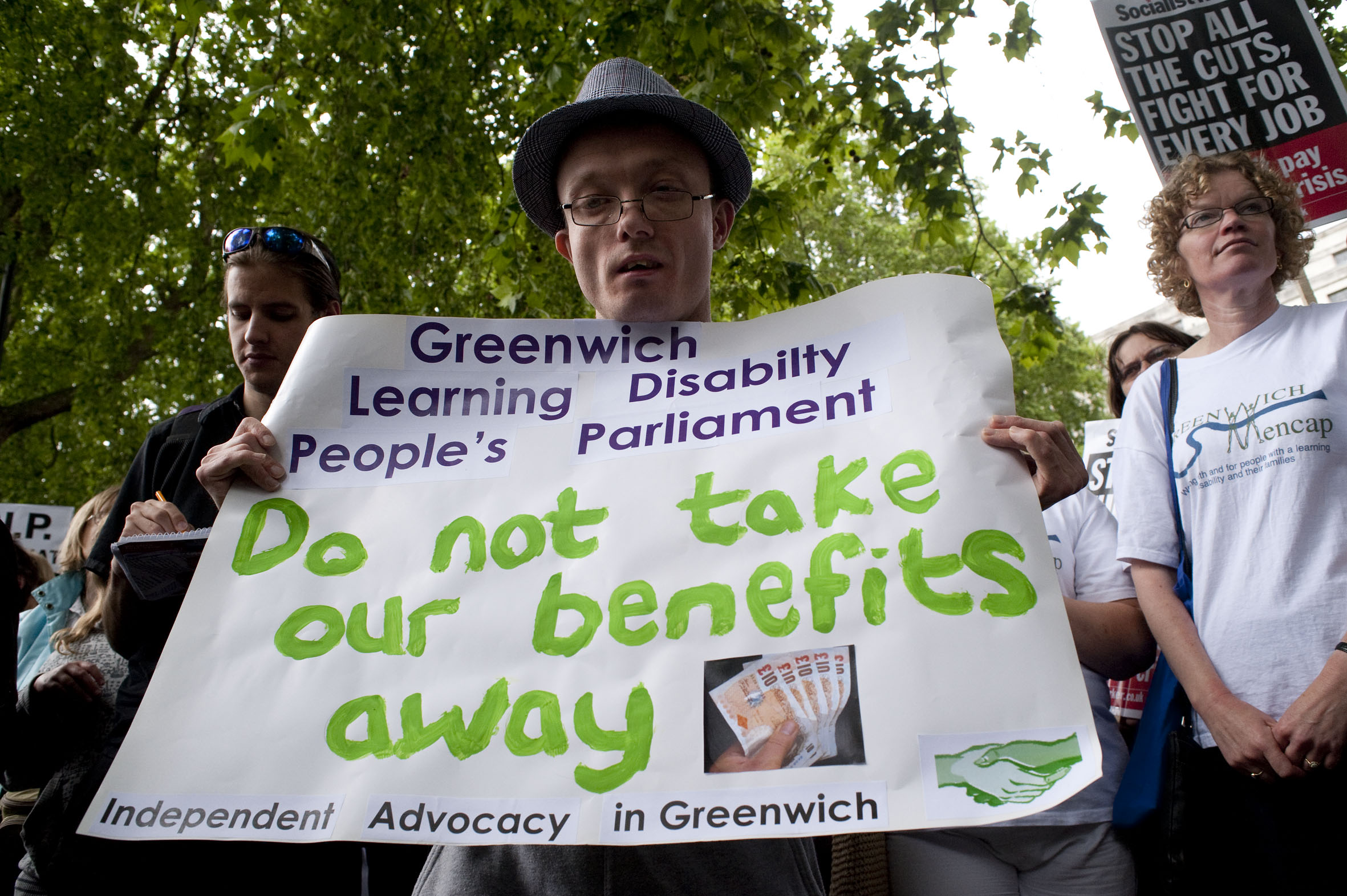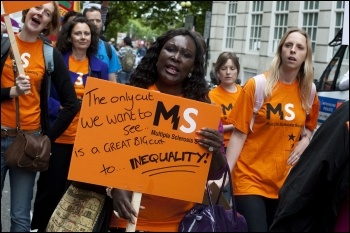The annual TUC disability conference in London on 18 May was in a very combative mood after the “hardest hit” march a week earlier had seen thousands of people with disabilities descend on central London to protest at the Con-Dem government’s cuts programme and its savage impact on disabled people.
Mark Baker, Public and Commercial Services union (PCS) NEC, personal capacity
A succession of delegates lambasted the government’s cuts in public services and facilities on which they are particularly dependent. The attacks on welfare services and benefit changes were covered, including 15,000 planned job cuts in the Department for Work and Pensions which PCS delegate Sian Ruddick addressed.
PCS has produced an ‘alternative programme’ to the government’s so-called welfare ‘reforms’ which has already been very well received across the trade union movement.
Cuts to the Disability Living Allowance and its replacement by Personal Independence Payment (PIP) and the abusive medicals carried out by ATOS Origin – a private company committed to making profits rather than looking after the interests of the disabled – were widely discussed.
John McArdle from the Black Triangle campaign spoke passionately of the direct action campaigns they have waged against the constant negative media images of disabled people which companies like ATOS perpetuate through their harsh ‘medical inspection’ regime.
The Coalition government’s retreat on the provisions within the 2010 Equality Act and its public consultation with a view to scrapping the Act were widely condemned but as one NUT delegate pointed out, the 2010 Act had itself weakened the previous 1995 Disability Discrimination Act (DDA).
PCS NEC member Alan Dennis moved a motion condemning a 60% cut to the jobs and enforcement functions of the Equality and Human Rights Commission (EHRC). PCS members in EHRC have already taken industrial action against this.
The creation of school ‘academies’ leading to less accessibility and increased discrimination in the education system featured strongly as did the lack of access to public transport facilities.
Janine Booth from the RMT union condemned the 800 jobs cut on the London Underground and the impact this would have on public accessibility, particularly for those with disabilities.
Les Woodward from the GMB union called for united action to stop the run-down and privatisation of the Remploy organisation that specifically helps to increase opportunities – particularly in employment – for disabled people.
In fact there was much talk of united action to defeat the cuts and lots of enthusiastic support for the proposed joint strike action of the unions PCS, NUT, ATL and UCU on 30 June, plus a constant refrain of the need for an economic alternative to the cuts.
Labour MP Anne Begg had opened the conference with claims about the last Labour government’s ‘progressive’ stance on equalities and disability rights.
However, she also chose to say that £1 billion is ‘lost’ every year in “fraudulent” disability claims, which simply adds to the prejudice against disabled people in general and the bullying and harassment that they regularly suffer.
Whilst some delegates concentrated on the return of a Labour government as the priority for the TUC, significant numbers criticised the previous government.
It was highlighted that academies, welfare ‘reform’ and a failure to enforce various disability laws all originated from Labour’s term in office.
Successive governments have refused to recognise the Social Model of disability which judges the environment and society as the factor which disables people.
Instead they have stuck to the outdated ‘medical’ model which highlights an individual’s disability, making them more vulnerable to victimisation. Time and again delegates highlighted the effect on them of job cuts, decimation of public services and the scapegoating of minority groups such as the disabled.
It is capitalism that is disabling them; and as well as united action by groups promoting rights for people with disabilities, alongside trade unions, they are more and more seeking out a political voice that speaks for them too.










